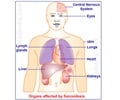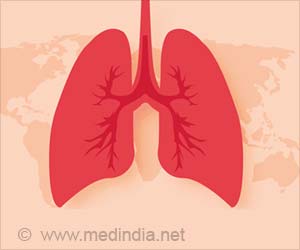Chronic lung diseases including cystic fibrosis, asthma, smoker’s lung, and chronic obstructive pulmonary disease (COPD) may develop as a result of dry airways, researchers from Heidelberg and US have revealed.
The study conducted using animal models has found that insufficient hydration of the airway surfaces leads to pathologies typical of chronic obstructive lung diseases in humans.Researchers believe that these findings may offer a new approach for the treatment of these diseases.
In cystic fibrosis, a defective gene causes a change in the transport of salt and water across the mucosal surfaces in the lungs, the intestine and other organs, and thus produces a change in the composition of the secretions.
With the help of the mouse model, Dr. Marcus Mall from the Department of Pediatrics at Heidelberg University Hospital proved a direct relationship between the defective gene and development of lung disease.
He found that certain sodium channels on the surface of airway cells that are responsible for the resorption of salt and water are ’hyperactive’. The cells absorb too much fluid, causing the airway surfaces to dry out and thicken mucus.
The lungs cannot be cleaned effectively of inhaled allergens, toxins and pathogens, giving rise to chronic pulmonary inflammation and respiratory insufficiency.
Advertisement
"We found changes that are not only typical for cystic fibrosis, but also for other chronic obstructive lung diseases such as asthma, chronic bronchitis, and emphysema," said Dr. Mall.
Advertisement
The adult mice gradually develop chronic bronchitis and emphysema, i.e. the destruction of the small alveoli in the lungs that are responsible for the exchange of oxygen between air and blood. These changes are typical for lung disease caused by exposure to cigarette smoke.
The study is published in the "American Journal of Respiratory and Critical Care Medicine".
Source-ANI
RAS/L











